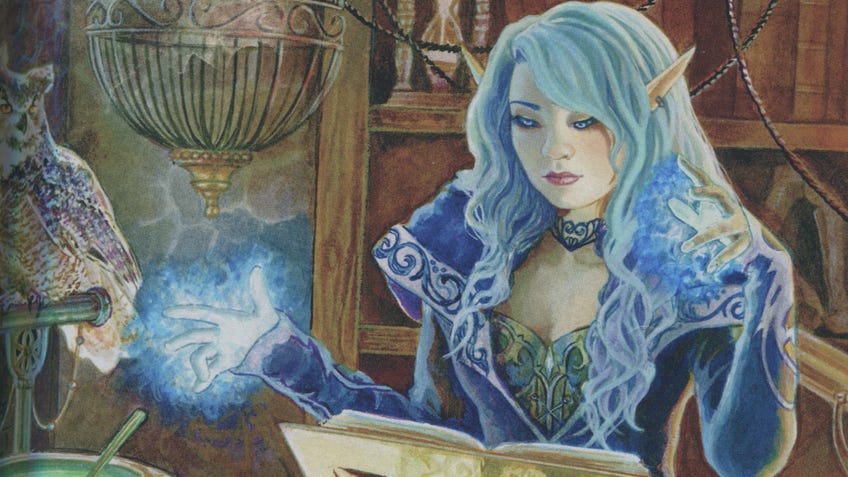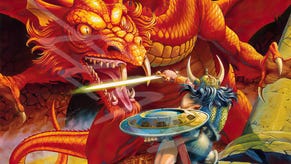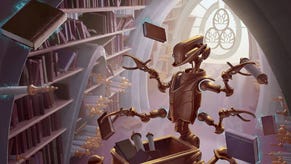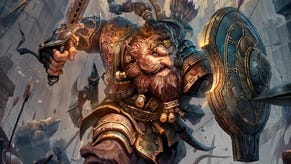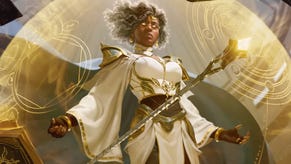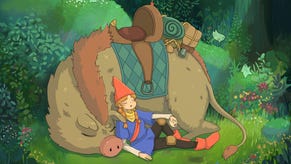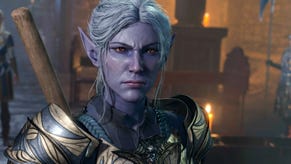Saving Throw: How Dungeons & Dragons helped me combat my social anxiety
Helping handbook.
I have struggled with severe social anxiety for as long as I can remember. While I want to be a friendly, sociable member of my community, I’m usually gripped instead by a bone-deep sense of fear. It’s a worry, a tension, a wave of nausea that appears whenever I’m around new people, or even just a large group. Naturally this has led to me avoiding certain situations - concerts, conventions, any crowd - that otherwise I might enjoy. For a long time, one of those things was trying out a game of Dungeons & Dragons.
I had been interested in the fantasy tabletop RPG, in a very abstract way, for several years. It seemed like something that I would enjoy, while at the same time - because it involved so much talking to people - it seemed hopelessly out of my reach. I never bothered pursuing it beyond that mild interest, because I never thought I’d actually be able to play. Anxiety does that: takes away my confidence and my hope, chipping away a little bit at a time, causing a constant, painful buzz in my head. So I’d never play D&D? Well, fine. I’d never do a lot of things.
But then a group of co-workers invited my husband to play. He does not have the same anxiety I do, so this invitation did not make him sweat or panic or lose his breath, arms wrapped like a vice around his stomach. He wound up loving the game, and he got the idea that maybe he could run his own game - and maybe we could play together.
He formed his own group. I knew two of the players, but four I didn’t, and I was incredibly nervous. As we were all rolling up our characters, I stayed silent, sitting by myself - as apart as I could be and still feel like a part of the group. We went over the setting, the rules and other bits of housekeeping, and then we jumped right in.
As that first night wore on, I discovered something I found to be amazing: I didn’t have to be myself. All the things I normally worried about started to fade into the background as I threw myself into my character. I played an earnest but painfully stilted young human man, the disappointing youngest son from a famous family of assassins. His father - who was called Falcon and whose reputation preceded him throughout the campaign - named him, somewhat affectionately, “Bumper”. All he wanted to do was make his family proud, but often encountered the problem that he didn’t have the stomach to assassinate people, even those he thought deserved it.
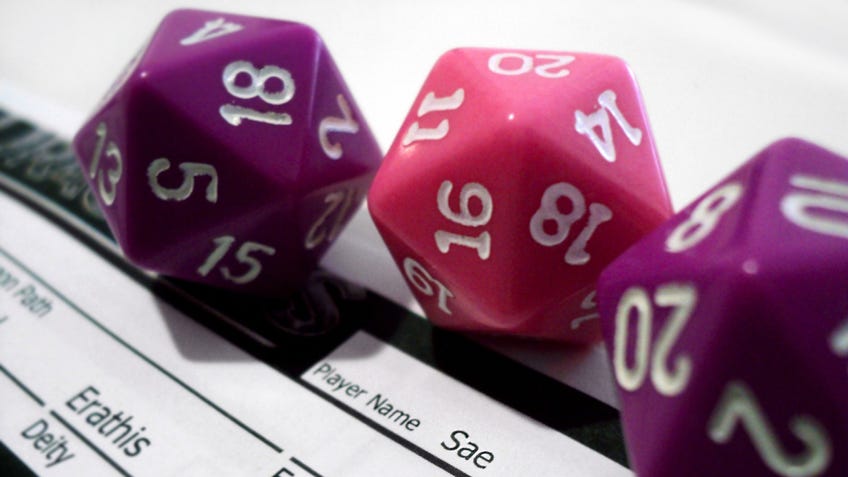
I didn’t have to worry about what I was going to do because I could either go along with the party, do what would most help the narrative or fight according to the abilities laid out neatly for me on my character sheet. A piece of paper might not be enough for a personality, but it was enough for me to latch onto in order to feel comfortable inhabiting that character.
I left feeling invigorated and hopeful. This might be something I could actually do. And it turned out my optimism wasn’t misplaced. Even though we weren’t actually interacting as ourselves, I began to feel more comfortable with the group. Though the dungeon master leads the process, one of the beautiful things about Dungeons & Dragons and other tabletop roleplaying games are how they facilitate collaborative storytelling. Everyone is working together to cobble together this new world they’re inhabiting: a world where the normal hangups, what might affect them in the real world, no longer apply. My anxiety was lessened tremendously when playing. There were still players I didn’t know well, but the connections that were building between our characters were starting to manifest between us as well.
I often don’t have my needs for socialisation met. D&D, however, is a weekly meeting where I am guaranteed to be welcome. Having a set, scheduled meeting time was a huge relief for me. I had a very low-pressure avenue for socialisation that in many weeks I desperately needed. I knew what time, who would be there, what we would be doing and what was expected of me. There were no unknowns other than what shenanigans the party might get up to that week - and instead of anxiety, I looked on that with anticipation. My character could fail or act on a monumentally bad idea and there would be no real-world consequences for me. The best part, though, was that this started to give me confidence in my interactions outside of the game. I was an essential part of a team, and I was starting to actually become closer to the other players. Dungeons & Dragons was not only something that I enjoyed, it was helping me.
And I’m not the only one. Anxiety is a condition that millions of people struggle with, and more and more I’m seeing stories about D&D helping others like it helps me. There are organisations who now use Dungeons & Dragons as therapy, with some professionals leading game sessions designed to help.
If you’re interested in getting started, I encourage you to learn how to play Dungeons & Dragons 5E. I’m so glad I found this game. It’s given me closer friends, and I’m able to carry my confidence from the game as I navigate the real world - which, even without dragons or liches or tarrasques, is significantly more scary.
